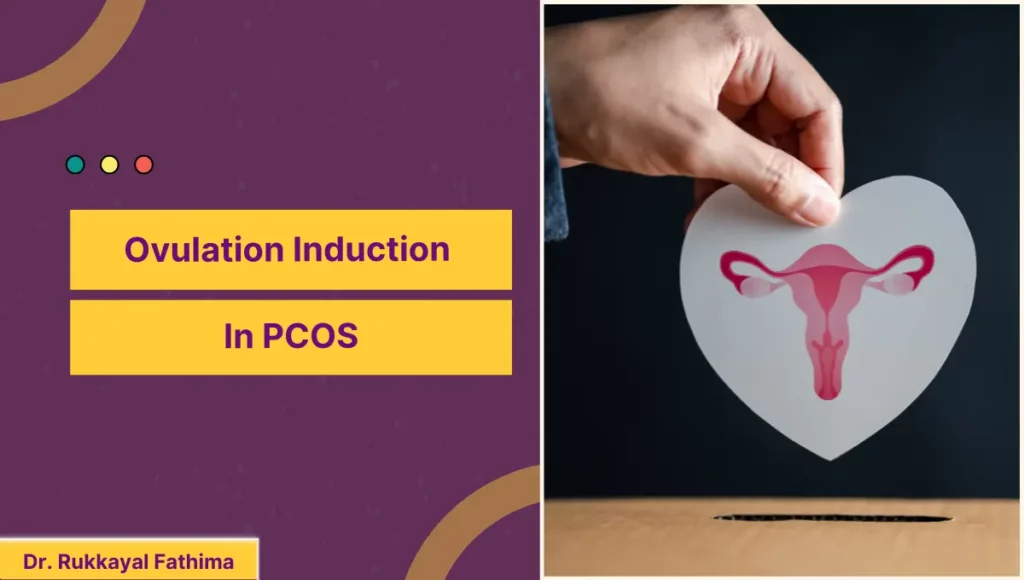PCOS (Polycystic Ovaru Syndrome) is a medical condition where women have difficulty ovulating and releasing new eggs. This is a serious issue that can lead to irregular periods and, sometimes, infertility.
PCOS has become common nowadays, with an average of 8–13% of the women of reproductive age affected globally.
PCOS doesn’t always cause infertility and can be treated with the right medication and lifestyle changes. Women can also choose to undergo fertility treatments like IUI or IVF if they can’t get pregnant naturally.
For obese or overweight women suffering from PCOS, doctors recommend they lose some weight to increase the chances of ovulation. Obesity is one of the major side effects of PCOS and can also reduce the body’s response to fertility medications.
Obesity also reduces the body’s insulin resistance. Losing around 5–10% of body fat has been proven to show good results by regularizing menstruation and improving response to fertility medications.
With weight loss management and some lifestyle modifications, most women can expect to see positive changes in their ovulation and menstrual cycle regulation.
Pharmacologic Agents and Ovulation Induction
Ovulation induction is a procedure to help women get pregnant. Here, women are administered fertility medications that stimulate the ovaries to mature and release more eggs.
Once the eggs mature, they are either retrieved for IVF or fertilized through natural means or IUI. Below are the fertility medications women are administered during ovulation induction.
Clomiphene citrate
Climophene citrate is usually administered between days two and five of ovulation induction. It helps increase the amount of hormones that aid in the maturation and release of the eggs.
Climophene works by blocking estrogen receptors in the hypothalamus and increasing the production of FSH (Follicle-Stimulating Hormone), thus inducing ovulation.
Letrozole
Letrozole is recommended as the first-line therapy to induce ovulation for PCOS women. It is a tablet that is taken once a day for five days following the start of a menstrual cycle.
As an aromatase inhibitor, letrozole prevents the enzyme aromatase from converting androgen hormones to estrogen. As a result, estrogen levels briefly decline.
The pituitary detects this decline in estrogen levels since the ovary and eggs create it. It then secretes more FSH, which prompts the ovary to form a lead follicle and may cause ovulation.
Metformin
The insulin-sensitizing medication metformin has been used in the past to encourage ovulation in PCOS-afflicted women. It has been demonstrated that Metformin has a much lower live birth rate than Clomid and Letrozole. Only PCOS patients with glucose intolerance are advised to use it now.
Gonadotropins
The hormones FSH and LH are found in injectable drugs called gonadotropins. They have a high rate of higher-order multiples and ovarian hyperstimulation syndrome, although they can be used to stimulate ovulation in women with PCOS.
Gonadotropins can be quite irritating to women with PCOS, and it can be challenging to manage how many eggs will develop when using this therapy. Due to this, these drugs are normally only prescribed to women who have not reacted to Letrozole and Clomid.
If a woman doesn’t respond to Clomid and Letrozole, a doctor may frequently advise her to have IVF right away to lower the danger of higher-order multiple gestations.
Inositol
Inositol, also referred to as Vitamin B8, is a type of sugar that influences insulin and aids in mental health and metabolism. It is naturally available in foods like fruits, nuts, beans, and grains.
Inositol can improve PCOS, especially when combined with folic acids. Studies have proven that daily doses of inositol and folic acid can reduce triglyceride levels in the body. They also improve the function of the insulin.
They also play a major role in inducing ovulation in women with PCOS. According to a study, taking 4 grams of inositol and 400 mcg of folic acid daily for 3 months induces ovulation.
Weight Loss
Conclusion
PCOS can be adverse to a woman’s fertility if left untreated for long periods of time. Women should take note of it and undergo all the necessary treatments their fertility doctors suggest to overcome it.
Yes, ovulation induction works for women with PCOS. It is a technique used to induce the production of eggs in women who have issues with ovulation.
Due to its ability to enhance ovulation and clinical pregnancy in PCOS-afflicted women, metformin (MET), a popular hypoglycemic medication, was also regarded as a first-line treatment with clomiphene citrate and letrozole. Insulin resistance has been shown to be a significant factor in infertile PCOS patients.
The success of ovulation induction depends mainly on the woman’s body condition. In general, patients can expect around 20–25% success in pregnancy per cycle. The percentage increases as the number of cycles increases.
Exercising, reducing sedentary habits, and maintaining a healthy body weight are the three key components to ovulate naturally. It should be advised to follow a balanced diet that is low in simple sugars and has anti-inflammatory properties. The ovulation rate and insulin sensitivity may both benefit from inositol.





